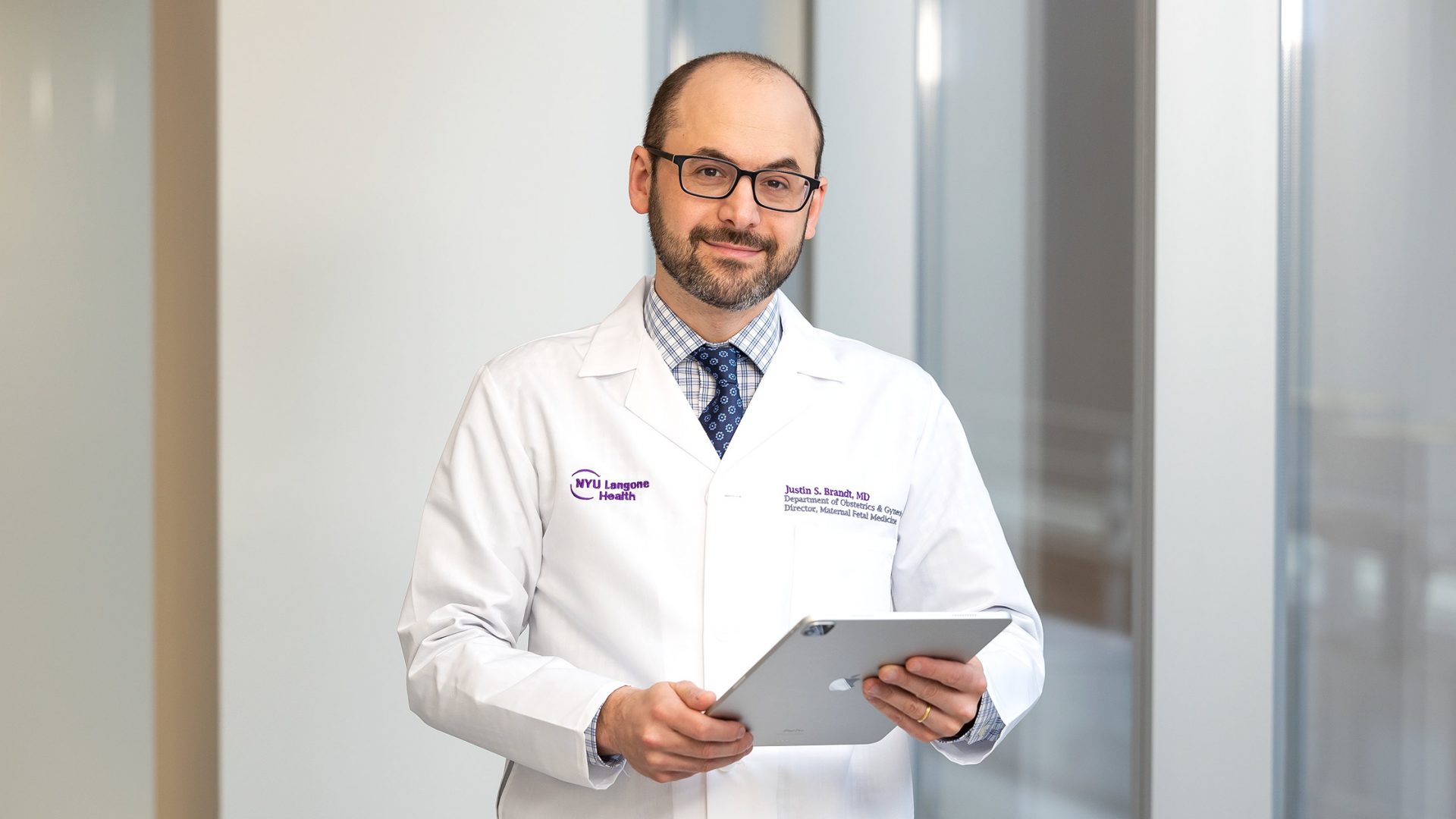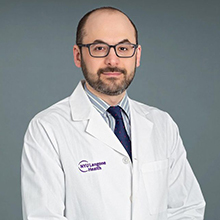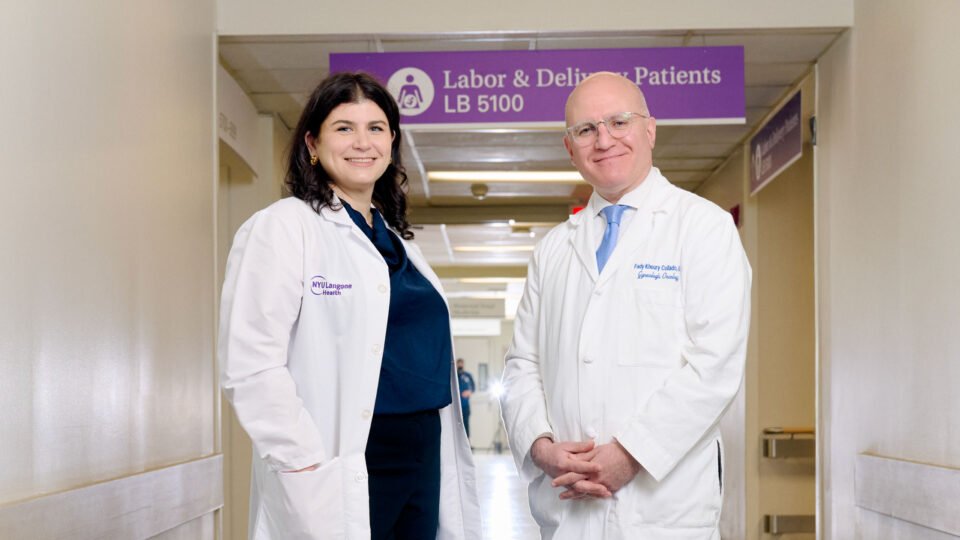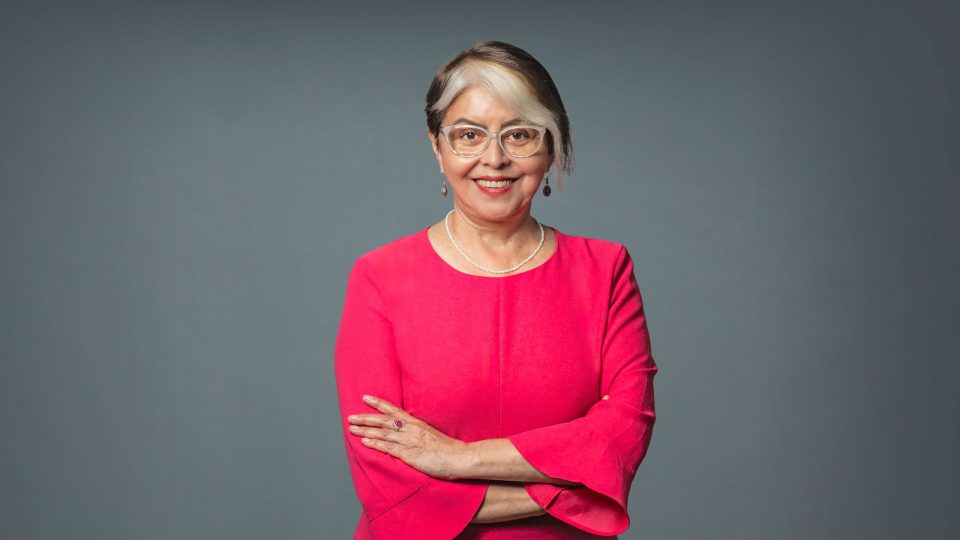Specializing in obstetric care for transgender patients, Justin S. Brandt, MD, adds uncommon expertise to NYU Langone Health’s Department of Obstetrics and Gynecology. Here, he discusses best practices for inclusive care, the need for education and studies that capture the diverse concerns of patients, and initiatives he and his team are pursuing to reduce the inequities experienced by the transgender and gender-diverse community.
Providing Affirming Care for All
Physician Focus: Transgender, nonbinary, and gender-expansive people often face discrimination in healthcare settings. What are some important considerations for obstetric care?
Dr. Brandt: The language and culture around pregnancy is highly gendered, and obstetric care largely caters to cisgender women. Fortunately, there has been growing awareness about the importance of providing care for all people. That means recognizing that people with diverse gender identities have pregnancies and give birth.
“Our goal is to create a system that is affirming of all gender identities so that people feel comfortable coming here for care.”
Justin S. Brandt, MD
Our goal is to create a system that is affirming of all gender identities so that people feel comfortable coming here for care. We want to affirm people’s identities during the entire pregnancy—from prenatal care, to delivery, to postpartum.
Physician Focus: What elements are important when planning for pregnancy?
Dr. Brandt: Some people with reproductive potential are taking testosterone. This important medication can have a remarkably positive impact on a person’s quality of life. Unfortunately, testosterone cannot be used during pregnancy. Patients should stop taking testosterone before pregnancy or as soon as they find out they are pregnant.
While the idea of stopping hormone therapy and experiencing pregnancy with all its gendered connotations can be difficult, we help our patients embrace pregnancy while affirming their unique identities.
Most of the care during pregnancy for transgender and gender-expansive patients is the same as for cisgender patients. Some of the unique elements of care include creating a dialog around talking about pregnancy that affirms someone’s unique identity, screening for depression, building an individualized birth plan, and ensuring a smooth transition to a team of affirming gynecologists and primary care doctors once pregnancy is over.
New Frontiers in Medical Education
Physician Focus: You’ve been involved in several educational initiatives designed to improve knowledge on the provision of health services to transgender and gender-expansive patients. How do you see education and training advancing?
Dr. Brandt: Educating future physicians and trainees is key to expanding access to inclusive obstetric care. As public awareness increases and more programs prioritize education around LGBTIA+ care, I hope that transgender and gender-expansive people will find affirming doctors and feel comfortable seeking care.
“Educating future physicians and trainees is key to expanding access to inclusive obstetric care.”
I recently completed my term on the Society for Maternal-Fetal Medicine’s Diversity, Equity, and Inclusion in the Workforce committee. We published a statement that affirmed the society’s commitment to excellence in obstetric care, research, and education for people with diverse sexual and gender identities.
In collaboration with the society, I’m currently working on a follow-up publication. I’m hopeful that this paper will provide more practical guidance on how clinicians can employ gender-inclusive practices in obstetrics and maternal–fetal medicine.
Some people have concerns about erasing women from pregnancy. To be clear, I want to advocate for an inclusive approach that ensures that all people—cisgender women, transgender men, and everyone with birthing potential—are included. The expansion of inclusive practices does not take away from the need to address sexism and other challenges that cisgender women face. We need to remember that people with diverse gender identities and birthing potential face sexism, too.
Pursuing Inclusive Research
Physician Focus: What current issues in research are you focused on addressing?
Dr. Brandt: People with diverse gender identities have been historically excluded from research. While professional societies recommend the use of inclusive language in research, fewer than half of obstetrics and gynecology journals require gender-inclusive research practices in their author submission guidelines.
There is also a lack of data about gender-inclusive research practices in obstetrics and gynecology. I’m very interested in how we can employ more inclusive research practices and promote their use.






